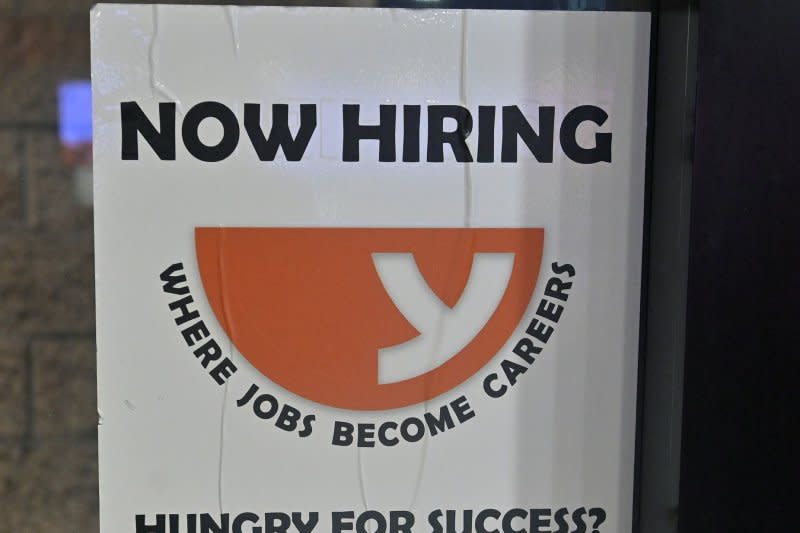ADP: U.S. added 177,000 new private sector jobs in August, down sharply from July

Aug. 30 (UPI) -- The U.S. private sector added 177,000 jobs this month, according to a private payroll processor ADP's monthly report released Wednesday, indicating hiring is beginning to wane.
ADP's figures were sharply lower than the 324,000 jobs added to the U.S. economy during July. And while numbers were consistent with pre-pandemic levels, data suggest hiring may be starting to plateau.
"After two years of exceptional gains tied to the recovery, we're moving toward more sustainable growth in pay and employment as the economic effects of the pandemic recede," Neda Richardson, the chief economist at ADP, said.
Jobs declined heavily in the leisure and hospitality sector, with new hires in hotels and restaurants off by some 30,000 this month, following a succession of strength. Those employees opting to stay on the job saw a year-on-year increase of 5.9% in wages, while job changers enjoyed a 9.5% bump in their pay.
Heavy government stimulus during the pandemic supported a broader economy struggling through the period of isolation that preceded the rollout of COVID-19 vaccines. That led to supply-chain issues and the subsequent boost in demand led the economy to overheat, with year-on-year inflation flirting with 10% last summer.

Through successive increases in its lending rates, the Federal Reserve has managed to bring inflation closer to 3%, but economic weakness has followed. Lending rates, particularly in the housing sector, are increasingly prohibitive and hiring is starting to erode.
On Tuesday, the Job Openings and Labor Turnover Summary, or JOLTS, showed the number of people who left their jobs voluntarily, a barometer of confidence in the broader market, declined 253,000 to 3.5 million in July.
As indicated in the ADP figures, most of those people quitting their jobs were in hospitality or food services. Fewer people looking for another job suggests confidence in the market is eroding.
And with a wave of strike action, most recently from members of the United Autoworkers Union, the decline in the number of quits may be ominous amid concerns about missing a paycheck as prices remain elevated, especially for rents.

